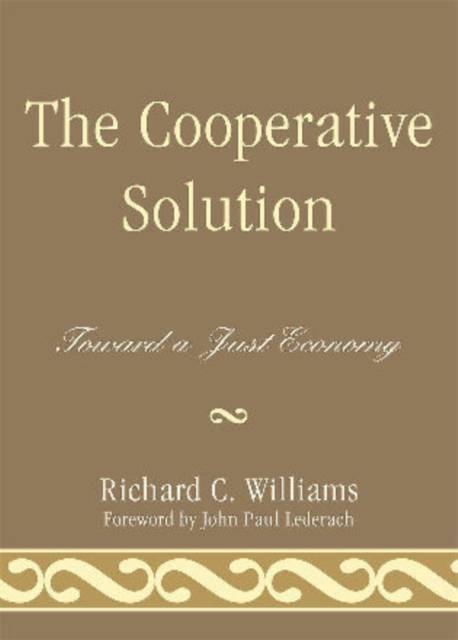
- Afhalen na 1 uur in een winkel met voorraad
- Gratis thuislevering in België vanaf € 30
- Ruim aanbod met 7 miljoen producten
- Afhalen na 1 uur in een winkel met voorraad
- Gratis thuislevering in België vanaf € 30
- Ruim aanbod met 7 miljoen producten
Zoeken
€ 79,95
+ 159 punten
Omschrijving
All over the world, poverty is gradually giving way to cooperative economic activity. At the same time, there are signs that standard competitive "free" markets are failing.
Empirical evidence shows that cooperation works better than competition and that cooperatives succeed more often than standard corporations. Assumptions underlying the competitive system are that competition results in equity for all and that poverty can be eliminated through the market. These assumptions simply are not true. On the contrary, the rich get richer; the poor, poorer.
Cooperatives, where each member holds one share and one vote, are more democratic than hierarchical corporations. Poverty is actually eliminated through a combination of microfinance and cooperation. Examples include Muhammed Yunus' Grameen Bank, Indonesia's People's Bank, and the cooperative adventure of Mondragon in Spain.
These examples provide a vision of true globalization from below, a vision of a just and sustainable world. The "how-to" is right here.
Empirical evidence shows that cooperation works better than competition and that cooperatives succeed more often than standard corporations. Assumptions underlying the competitive system are that competition results in equity for all and that poverty can be eliminated through the market. These assumptions simply are not true. On the contrary, the rich get richer; the poor, poorer.
Cooperatives, where each member holds one share and one vote, are more democratic than hierarchical corporations. Poverty is actually eliminated through a combination of microfinance and cooperation. Examples include Muhammed Yunus' Grameen Bank, Indonesia's People's Bank, and the cooperative adventure of Mondragon in Spain.
These examples provide a vision of true globalization from below, a vision of a just and sustainable world. The "how-to" is right here.
Specificaties
Betrokkenen
- Auteur(s):
- Uitgeverij:
Inhoud
- Aantal bladzijden:
- 110
- Taal:
- Engels
Eigenschappen
- Productcode (EAN):
- 9780761852841
- Verschijningsdatum:
- 4/11/2010
- Uitvoering:
- Paperback
- Formaat:
- Trade paperback (VS)
- Afmetingen:
- 150 mm x 226 mm
- Gewicht:
- 181 g

Alleen bij Standaard Boekhandel
+ 159 punten op je klantenkaart van Standaard Boekhandel
Beoordelingen
We publiceren alleen reviews die voldoen aan de voorwaarden voor reviews. Bekijk onze voorwaarden voor reviews.







